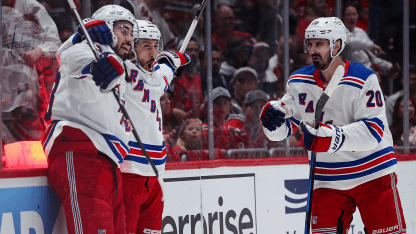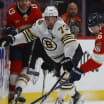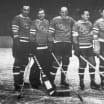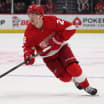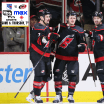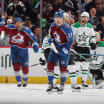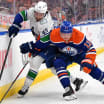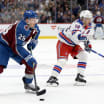The Rangers didn't allow it to happen to them. They never came close to succumbing to the so-called curse of the Presidents' Trophy that felled eight of the previous 37 winners in the first round, including the Lightning and Bruins.
What does that mean?
For one, it proves their superiority to the Capitals, but more importantly it says a lot about the Rangers’ ability to rise to the moment, to do what is needed when it's needed, to leave no doubt.
"It just means we're ready for everything," goalie Igor Shesterkin said. "We play 'til the end, all 60 minutes, and we help each other be better."
New York, which had the third-ranked penalty kill in the regular season, scored as many short-handed goals (two) as Washington scored power-play goals, going 15-for-17 on the PK in the series (88.2 percent).
Alex Ovechkin, the most dangerous goal-scorer on the power play in NHL history, barely sniffed a shot on goal on the power play, let alone a scoring chance. He did not have a point in the series, the first time in his 15 postseason appearances that he had zeroes across the board.
"We were doing a good job on the penalty kill, making sure that we stayed close to him, but not only that, the rest of the three guys, the pressure that we put, the way we work together, that doesn't allow them to break us down and get him open," Zibanejad said. "That's usually what happens, he gets open when there is a breakdown. We did a good job there and then just staying tight on him. You know when he's out there and just making sure that we play good defense."
The Rangers, not surprisingly, dominated on the power play, which was also No. 3 in the League in the regular season. They were 6-for-14 in the final three games, including 3-for-4 in Game 4, after going 0-for-2 in Game 1, when they won 4-1 with four 5-on-5 goals and a perfect PK (4-for-4).
Their top unit with Zibanejad, Trocheck, Chris Kreider, Artemi Panarin and Adam Fox was dynamic. Just look at their first power-play goal Sunday. Everyone touches the puck, some multiple times, with it on and off their stick in a flash, before Trocheck scores from the slot.
"You want to stay predictable to each other, but at the same time we have guys that can play in so many different positions in the formation of how we play, so I would say it's hard to scout us," Zibanejad said. "I think that's the next step for us. I think we've been good, but I think that really has been helping us to move around a little more, get more movement and be a little more unpredictable for the opponent and still be predictable for our guys."
New York started with the puck often, winning 55.5 percent of the face-offs, including 70.4 percent on the power play, 51.9 percent on the PK and 58.1 percent in the defensive zone overall.
Trocheck led the Rangers with 73 face-offs taken. He won 52 for 71.2 percent.
The Rangers trailed in the series for a grand total of 3:21; for 2:47 in Game 2 and for 34 seconds in Game 3.
They had 10 different goal-scorers and 14 of 18 skaters with a point.
Shesterkin was brilliant too, allowing seven goals on 101 shots for a 1.75 goals-against average and .931 save percentage.
"Honestly, a couple of you guys asked what would be different in the playoffs from the regular season?" Zibanejad said. "Well, I think the things that we've done in the regular season over 82 games is something that we continue to do. And I think we've been building toward this, and I still think we can be better."
They will need to be. It's going to get harder from here. But starting like this, winning like this, dominating like this, doing it in 240 minutes across one week should fuel the Rangers' confidence and provide the stamina they'll need for longevity.
